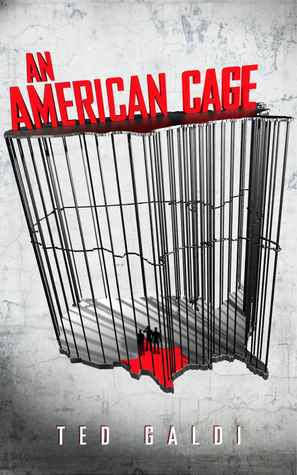June 8, 2017
 © Adam Watson
© Adam Watson
The society we find ourselves in today — a culture comprising equal parts absurdity and corruption — begs to be satirized, if not so much for comic purposes than for greater moral ones. Here in 2017, we have at least as much to lampoon as the ancient Romans (we’re only a couple more excesses and a few more reality TV shows away from the return of vomitoriums and gladiatorial blood sports, it seems), yet fewer and fewer people seem to be writing satire — or, more pointedly, fewer and fewer people seem to be writing satire well. Thus Kurt Baumeister’s zestful, remorseless, clear-eyed debut novel Pax Americana bounds on to the scene at a time when its humor is not only welcome, but necessary.
The plot and premise of Pax Americana reads a bit like a the sly wink of James Bond novel as directed by Tarantino at his most manic. The story begins in the year 2034, a time when America’s large-scale conservatism and religious fundamentalism has a stranglehold on the national consciousness. In the novel’s first chapter we are introduced to Tuck Squires, an agent for the Interenal Defense Bureau, whose internal narrative sets the book’s tone as he is driving along in his Epiphany listening to Christian music:
“He cut the music and thought of America, of all it had meant and would mean to the world. He thought of another song, one that soared in a very different way than Jehovah’s Wishlist. He thought of ‘America the Beautiful,’ how it was a conundrum, so right and so wrong all at once.Or, not so much wrong exactly, more like inadequate, unable to see far enough forward to take in not just America’s yesterdays, but its todays and tomorrows.”
Tuck, as we can infer from this passage, is as earnest a Traditionalist as they come…. and it is usually the earnest and self-serious who most desperately need to be satirized. As we meet his Traditionaist cronies — a cast of characters ranging from the once-suave special agent Ken Clarion to the charismatic Rev. Dr. Ravelton Parlay, owner of the Righteous Burger restaurant chain and occupant of an estate modeled after the Whie House (the hilariously named Bayousalem) — we see Baumeister’s ability to produce characters of nearly Dickensian grotesquerie yet present them in such a congenial way that we can’t help almost liking them, or at least feeling sorry for them, even as we acknowledge how corrupt and wrongheaded they are. It takes a skillful satirist to elevate the buffoons to a level of humanity without losing his comic edge, and Pax Americana manages to strike this balance in an appealing way, with delightfully acrobatic shifts between the highbrow and the lowbrow, the quotidian and the fantastic, the modest and the grandiose.
At the book’s progressive moral center is Diana Scorsi, an intelligent, attractive, and idealistic woman who soon finds herself in “a black Wonderland… a dimension where things can go wrong in a great hurry.” Scorsi is the inventor and developer of groundbreaking computer software that could change the sociopolitical landscape, essentially returning us to a more autonomous, free-thinking, pacifistic ways of being: “Everyone could have their own god, and that god would be Symmetra, and if everyone had it there would never be need for war again.”
10 Sci-Fi Visions of the AfterlifeThese 10 authors have broached the question that’s been with us from the start: what comes next? 10 literary takes on…electricliterature.com
Naturally, the Traditionalists have other ideas for how this software should be used. The resulting conflict includes kidnapping by men in superhero masks, fiery deaths and near-deaths, scenic locales, double agents and double crossers, and a surprise ending that most readers should find oddly satisfying. Pax Americana itself is a mad romp, utterly pleasurable and fun on one level while trenchant and recognizable on another. The complacent idicoracy in Baumeister’s vision of 2034 is not so distant from the increasingly divided country we are seeing today, which adds relevance and gravitas to a novel that already stands on its own as being a hell of a lot of fun.
But the greatest pleasure in Baumeister’s writing lies not just his comic gifts and political prescience; it comes also from his nimble versatility and depth, exhibited in many passages throughout Pax Americana. Note this bit of omniscient reflection of Ken Clarion’s: “Whether it was love for the country, the job, or a woman, love lingered. Even when everyone around you believed it had become something else — jealousy, pain, friendship, hate — even then, you carried a memory of its time as love. Like faded tracks in fallen snow, footprints only you could see, love survived whether you wanted it to or not.” This is terrific writing with an unpretentiously literate sensibility, suggesting the work of an author with far more plays of light and shadow to show us.
Advertisements Share this:




